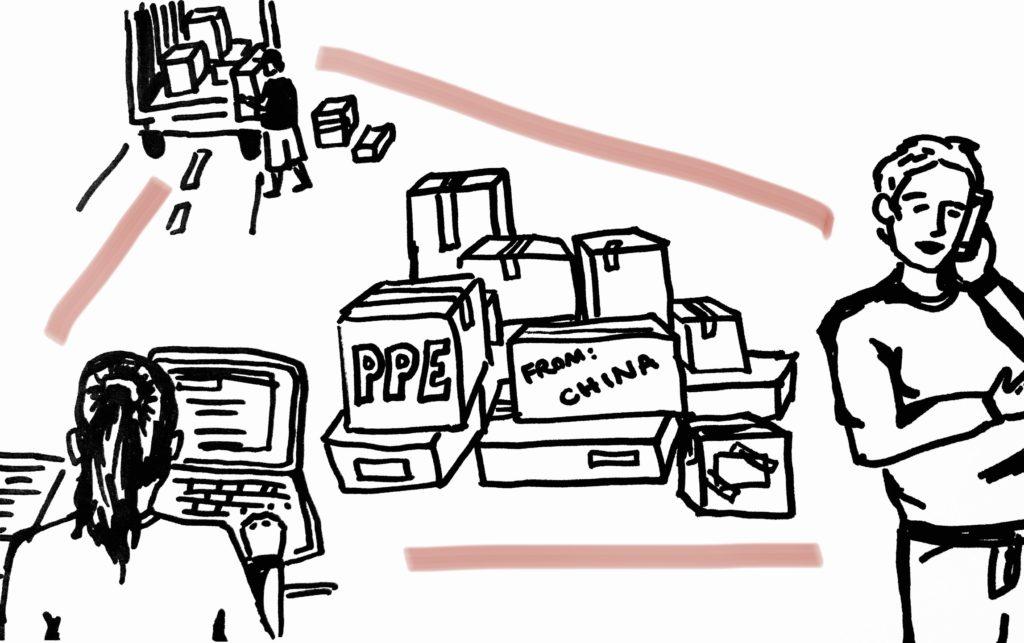Efforts by Chinese international students and alumni to send personal protective equipment (PPE) to the city of Grinnell are a potentially lifesaving solution to the medical supply shortage, but the logistics of shipping and organizing large amounts of PPE internationally have proved difficult to coordinate.
Xinya Yang ’20, who privately organized some of the first shipments of PPE to Grinnell from other Chinese international students who had returned home, is now working on a team with College staff members to continue the project. Along with Yang and Jack Xing ‘23, who has been collaborating on the project from China, the team includes Alumni and Donations Assistant Deidre Freeman Huff, Associate Director of Emergency Management Heather Cox, Director of Outreach Programs and Events Sarah Smith, Director of Health Services Deb Shill and Assistant Vice President for Facilities Management Rick Whitney, among others.
Of the team’s creation, Freeman Huff wrote in an email to The S&B, “The College got involved because we needed to organize and coordinate need, delivery, inventory and distribution of these donations. Remote working had led to some job role adjustments, which meant that some staff member had more capacity to help coordinate this effort.”
Team members are also working with individuals from outside of the College to distribute the donations to the community. Smith and Freeman Huff, for example, are working with Brian Paul, coordinator for the Poweshiek County Emergency Management Agency. Paul ensures that PPE supplies are distributed not only within Grinnell, but throughout the county to healthcare professionals in need.

Yet coordinating a team of this magnitude has proven difficult. As a result of the College’s social distancing policies, all meetings of the PPE team take place over the videoconferencing platform Webex. Yang said that the online-only nature of the coordination has limited the effectiveness of the project due to slow College internet and lags in updates from team members.
In a later update, Yang informed The S&B that these team meetings are no longer happening.
Other major complications to the project have come from the equipment ordering process itself. The team has had to specially contract a shipment company to get PPE to the US. The team raised $10,000 in order to buy PPE – an amount of money that occupies a “weird middle ground” between the order of a single consumer and the multimillion-dollar orders of large companies and hospitals, according to Yang. Therefore, she said, the team does not get the privileges of being a client to the manufacturers.
Customs presents another issue. The orders of PPE are subject to customs processing in both China and the United States. The team placed an order a few weeks ago for American-made N95 masks that were stocked in China in the hopes of getting past United States customs more easily, but the shipment was delayed in Chinese customs. Other shipments are still delayed in various parts of the world, with no known arrival date.
Still, despite logistical difficulties, the equipment provided by this project has been a critical contribution to local medical providers and the general public. Aside from the College-coordinated large-scale donations to local medical organizations, Yang has also been pursuing a private effort to distribute masks to Grinnell students, community members, and providers, coordinating pickup times remotely over Facebook from her off-campus house.
Editor’s note: An earlier version of this article indicated that Yang’s private distribution of PPE to the local community was done on behalf of the College, when in fact she pursued it as a separate endeavor from her work with the College team.



























































